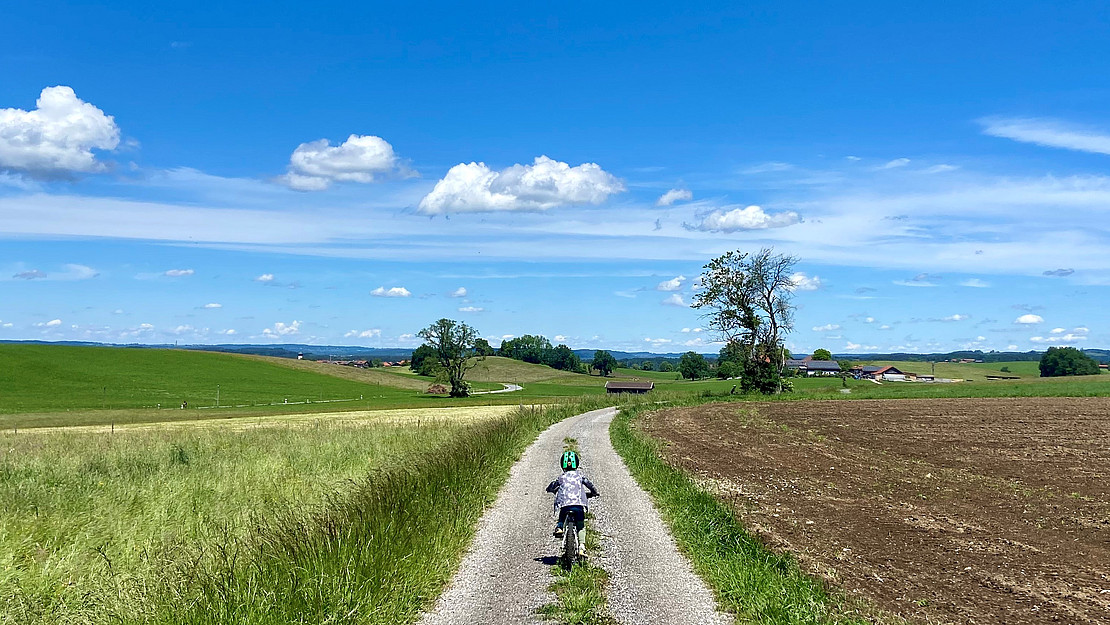Meldung
Bioeconomy report: Germany needs too much land abroad for agriculture
 Image: Beck-O'Brien
Image: Beck-O'Brien The report presents new data on the performance of the German bioeconomy. It shows how much biomass from agriculture, forestry and fisheries was produced, traded and consumed for various purposes in 2020. The effects on jobs, biodiversity and the potential of the circular economy, among other things, were also assessed.
Biomass use in the bioeconomy is becoming smarter. For example, over the last three years there has been a significant shift from conventional biofuels to advanced biofuels made from waste, residues and by-products. At the same time, 80% of biofuels are imported. Competition for waste and residues is increasing as innovative uses for e.g. textiles and chemicals are also being found. This points to one of the biggest challenges for policy makers in implementing the bioeconomy that the report identifies: managing trade-offs. Synergies and contradictions between different utilization options must therefore be carefully examined, for example between material and energy use, according to the report.
No balanced development of the bioeconomy yet
The sustainable availability of biomass depends on the environmental impact and the possibilities for economic activity within ecological limits. A balanced bioeconomy in line with global sustainability goals requires a balance between consumption and sustainable supply. More than 60% of the agricultural land used for German consumption is grassland and is used to feed livestock to meet the high meat consumption, which is at least three times higher than recommended. 16% of German water consumption for the bioeconomy comes from regions with high water scarcity, mainly the Middle East. In addition, increasing forest disturbances could lead to harvest deficits for coniferous species in the medium term. Careful planning is therefore essential to secure future supplies and achieve sustainability goals. This includes the efficient, sufficient, fair and safe use of biomass.
Options for improvement and future prospects
The environmental footprints were modeled both on the basis of a reference scenario and in the form of a simple "what-if" scenario up to the year 2050. The reference scenario extrapolates the trends of the most important influencing factors of the bioeconomy. It shows that several footprints decrease, partly as a result of the energy transition and the gradual decline in meat consumption. However, a shift to a healthier diet could further contribute to reinforcing these trends. If meat consumption per capita in Germany were reduced to 300 grams per week, the agricultural biomass footprint, the agricultural land footprint and the climate footprint could be reduced by 13%, 14% and 17% respectively in 2050 compared to the reference scenario. This scenario takes into account the recommendations of the German Nutrition Society.
Holistic view of the bioeconomy
The report presents various indicators, trends and scenarios on the German bioeconomy and considers various aspects of sustainability. The combination of different methods and analyses creates a systemic perspective on the bioeconomy. By taking a comprehensive view, policymakers can avoid shifting problems. In the long term, the report is intended to serve as a basis for the further development of regular monitoring of the bioeconomy in Germany.
Further information:
Report: 'Monitoring the German Bioeconomy: Status, performance, trends and implications for a sustainable transition',
https://kobra.uni-kassel.de/items/9f870f42-edfc-410b-bb9d-391b2e645461
German summary:
https://kobra.uni-kassel.de/items/6f174669-7554-4707-b2ad-ead4b9076931
English summary :
kobra.uni-kassel.de/items/dddc0ff2-88bd-4406-ae05-66ba8613c8c1
Central platform for monitoring the bioeconomy in Germany: https://www.monitoring-biooekonomie.de/
The research project at the University of Kassel: https://symobio.de/